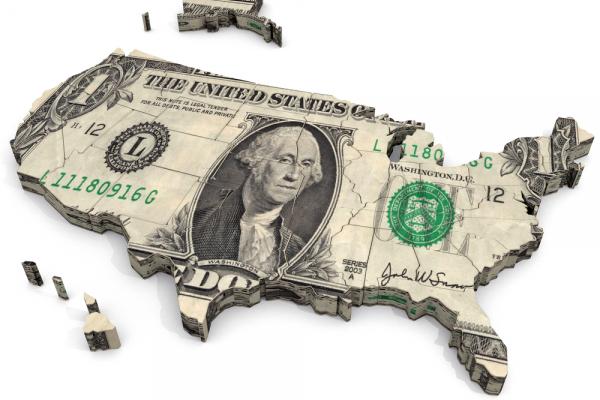The movement to give every American an equal say in the government decisions that affect our lives gained a “great new ally with a worldwide voice” last week. I’m referring of course to Pope Francis, who when speaking to an Argentine magazine said, "We must achieve a free sort of election campaign, not financed. Because many interests come into play in financing of an election campaign and then they ask you to pay back."
The Pope is a welcome addition to the growing national movement in the United States that aims to refocus government on fulfilling the needs and concerns of everyday voters, not on granting special favors to big campaign donors. In his first two years since inauguration, Pope Francis has dedicated his papacy to addressing the staggering economic inequality tearing lives apart here in the U.S. and around the world.
His statement on how we finance elections is not a deviation from that mission. It is an acknowledgement that a functioning democracy and economic fairness are two sides of the same coin. For years political leaders have perpetuated a vicious cycle of economic inequality begetting political inequality, and vice versa. The policy levers we pull must reverse this system to create a virtuous cycle of greater economic prosperity and freedom begetting greater political equality.
Pope Francis understands this, and so too do a growing number of religious communities organizing to tackle the problem of money in elections. The Franciscan Action Network, the organization that I direct, leads a coalition of 18 national faith organizations urging the U.S. Congress and President to take steps to reduce the corrupting influence of money in elections. Methodists, Presbyterians, United Church of Christ, Muslims, Quakers, Mennonites, Disciples, and several Catholic organizations and religious orders have joined with others to call out their shared teachings about integrity and honesty, and their belief that a democratic country should actually adhere to democratic practices.
A variety of faith traditions have joined in our call for a constitutional amendment to curtail the role of money in politics. In the sacred texts and writing representing each of our spiritual traditions we find stories warning us about the evils of worshiping money.
In the Jewish tradition, the Talmud states, “A mitzvah is better done personally than done via agent.”
In the Christian tradition, the Gospel of Mathew tells us, “You cannot serve both God and money.”
These warnings are found throughout all faith traditions.
We applaud the Pope’s efforts in this struggle and encourage him to amplify his call for a more representative system for funding elections when he addresses Congress in September. After all, the American system is a prime example for the world of how not to fund elections. The rise of super PACs and outside political groups have given the billionaire class ever more power to bankroll the election campaigns of our elected leaders.
Just 50 individuals and their spouses accounted for more than a third of the total money raised by super PACs in the 2014 federal elections. Who do you think these politicians have been listening to most since they got to office? The 150 million Americans making less than $52,000 a year or these 50 billionaires?
Like Pope Francis, we all know the answer to that question. Thus far the national Republican Party remains steadfast against any commonsense proposal to ensure a government where everyone has a voice, despite overwhelming public support in favor of campaign finance reform and an increasing number of Republican state legislators leading campaigns for money in politics solutions.
Fortunately, not all avenues for reform go through the corruption-denying Congress. The President can and should follow the Pope’s wise words and sign an executive order to bring more transparency to money in elections. An executive order, supported by more than 50 organizations and over 100,000 petition signers, would require any company that does business with the federal government to fully disclose all of the money they spend to influence elections.
Barely one-fourth of the 15 largest public traded federal contractors, which collectively gobble up over $100 billion in federal payments, currently provide full transparency of their political spending. The executive order doesn’t altogether fulfill the vision of democracy laid out by Pope Francis, but it gets us one step closer and builds momentum for bigger and bolder solutions like a constitutional amendment.
Indeed, in the same interview last week, the Pontiff put his finger on another step.
"Perhaps public financing would allow for me, the citizen, to know that I'm financing each candidate with a given amount of money," he said.
Patrick Carolan is the Executive Director of the Franciscan Action Network, a grassroots organization amplifying the social justice efforts of Franciscans around the country.
Got something to say about what you're reading? We value your feedback!
